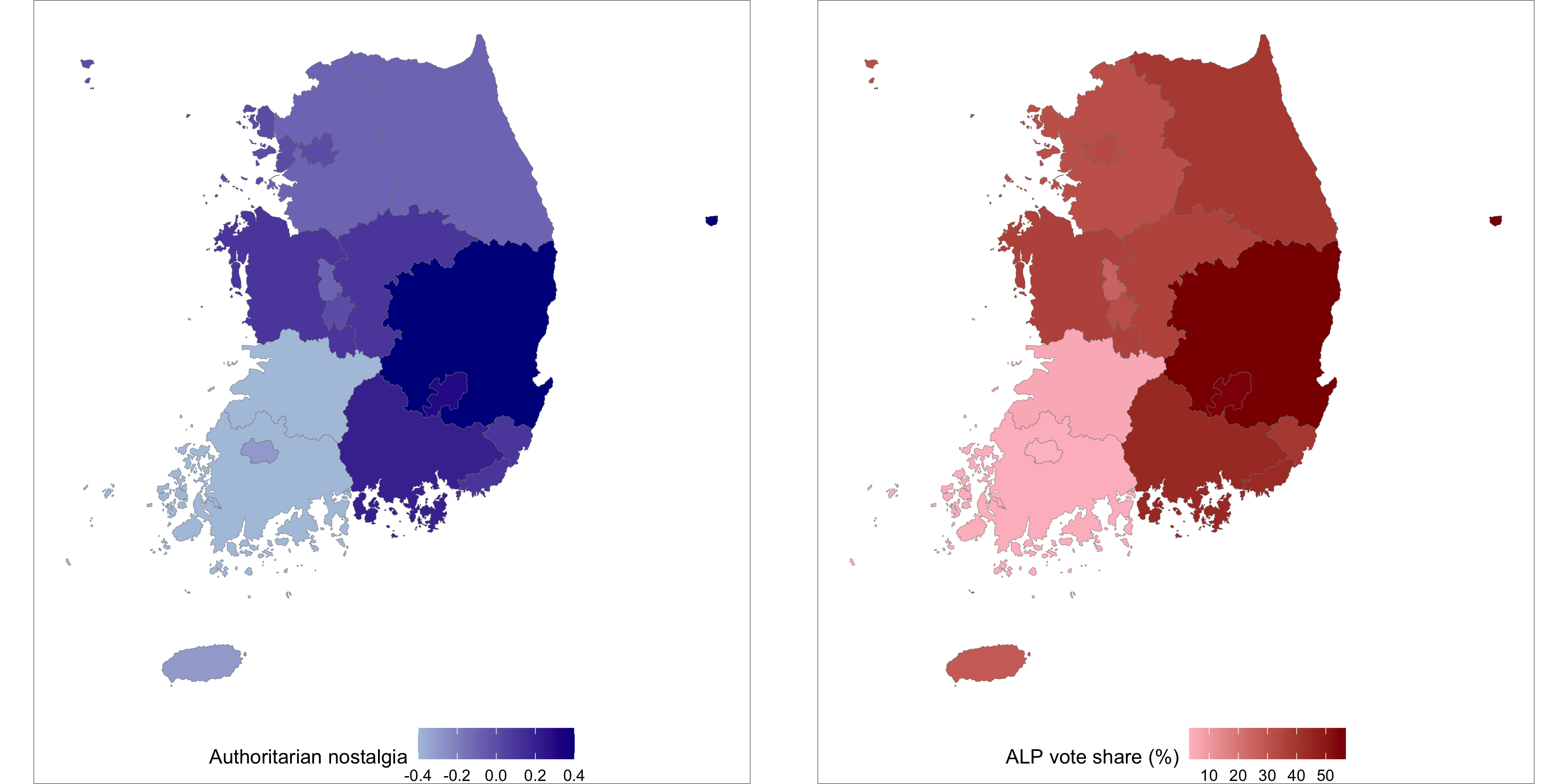Authoritarian Nostalgia, Group Sentiment, and Political Behavior
Legacies of an authoritarian past have enduring effects on voters’ attitudes and behaviors. I argue that authoritarian nostalgia is an important source of group sentiment and related behavior in post-authoritarian democracies. Voters with nostalgic sentiment construct heightened social identity connected to the past, exhibit strong group sentiment based on historical perception, and express attachment towards authoritarian successors. I test this argument with a novel measure of authoritarian nostalgia. With original data collected from South Korea and Taiwan, I provide evidence that nostalgic voters are likely to exhibit strong group sentiment observable through partisan attachment. Abstracting from the specific cases, I use a randomly assigned candidate comparison analysis to demonstrate that voters high in authoritarian nostalgia are more attracted to hypothetical candidates evoking nostalgia than those with high programmatic or ideological proximity. Overall, the results show how authoritarian nostalgia remains important as a source of social identity in maturing democracies.
